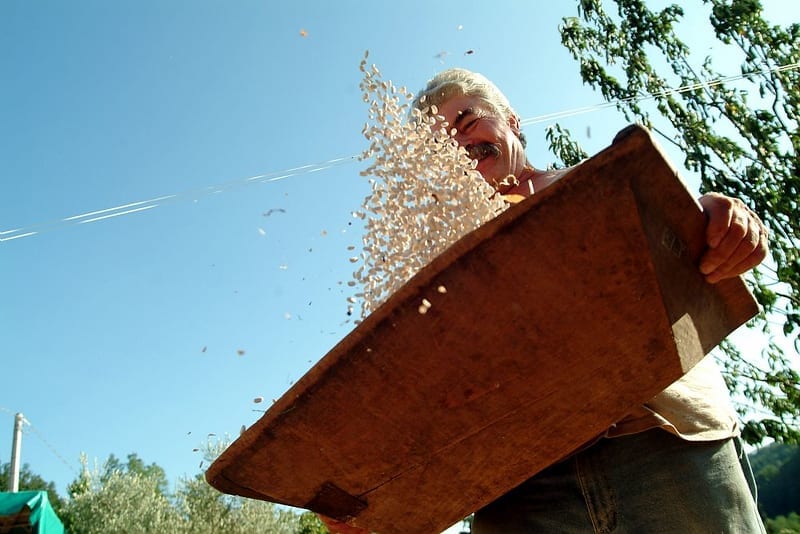Our Food, Our Planet, Our Future
The imbalanced relationship between these three interlinked concepts – food, planet, and future – highlights the need for reforming our food value chains to be more sustainable and resilient to crisis. COVID-19 has exposed many environmental, economic and social issues, but has also shined a light on the fragility of our current food systems. For this reason, during the past months at Terra Madre Salone del Gusto, a set of change-makers, as part of the Slow Food network, have been discussing how to move forward in the reform of our food systems.
Food systems are currently threatening and exhausting natural resources through the intensive farming and industrial agriculture. Forests are being cut down to provide new pastures for livestock; water is being polluted and used over its capacities; and the indigenous peoples that have lived and cared for those lands for centuries are being deprived of their rights.
The privatization and unsustainable exploitation of resources are both a driver and a consequence of the climate crisis. As the scarcity of resources becomes a reality the fight to secure those that remain has already begun. It is a fight that is exacerbating the climate crisis – degrading the environment and, in some regions, pushing indigenous populations outside of their lands, even if they live in some of the richest places in terms of natural resources.
A healthy planet = healthy people
In order to reverse this situation and to build more sustainable food value chains, we need to change our relationship with what we eat. The current food systems – forged during the past decades – have driven the population towards an alimentary illiteracy, creating inequality in the access to good, clean, and fair food. The way we interact with our food, how we produce, distribute, choose, and consume it, has major impacts on our planet. As the UN Decade on Ecosystem Restoration claims, “the healthier our ecosystems are, the healthier the planet – and its people”. That’s why we need to work on food education, equity, inclusion and justice. This task would not only combat climate change but also social justice.

The global grassroots organization Slow Food identified the need to work on food education back in 1989. With the rise of fast food, they saw the necessity to combat people’s dwindling interest in the food they eat, where it comes from and how our food choices affect the world around us. They believe that “through our food choices we can collectively influence how food is cultivated, produced and distributed, and change the world as a result”. They promote this global change through their local networks, raising awareness in events such as Terra Madre Salone del Gusto– currently taking place online. This event that Slow Food organizes together with the City of Turin and the Region of Piedmont, is the most important event dedicated to good, clean and fair food in the world.
Farm to fork
Europe has only recently started counteracting unsustainable food systems, setting a milestone with the Farm to Fork strategy, integrated in the EU Green Deal. This legislation draws a roadmap towards a healthier, more sustainable food system at every stage of the process. A food system that protects the health and well-being of people as well as reinforcing the competitiveness and resilience of the European Union. But for that European strategy to be effective, it has to be transposed to the national legislation of the member states.

However, to make a real change at a global level, the EU’s actions towards sustainable food systems needs to be amplified in other regions of the world. The promotion of agro-ecology, sustainable diets, and the need to eat less meat, are fundamental aspects that need to be tackled around the globe.
Nevertheless, the discussions need to be followed by adequate legislation to push that shift at all levels. Networks such as Slow Food will continue to work towards that change raising awareness and supporting local communities. But the global population – policy makers included – has to listen carefully to the warning that the COVID-19 pandemic has sent about the fragility of our current food systems and re-balance the relationship between these three interlinked concepts: food, planet and future.